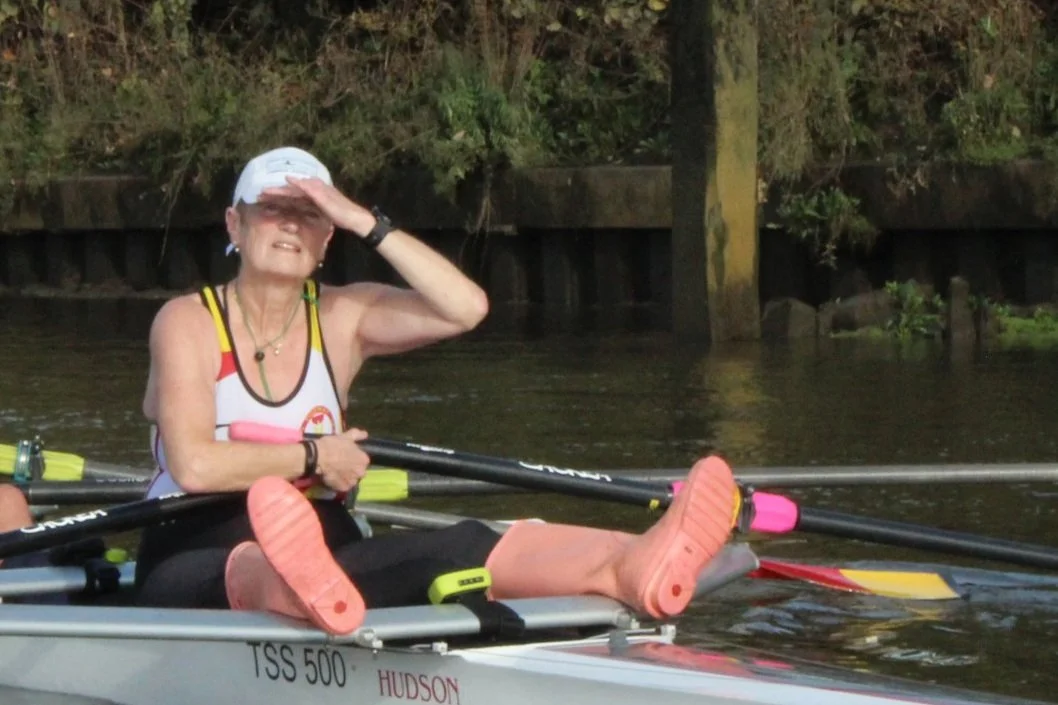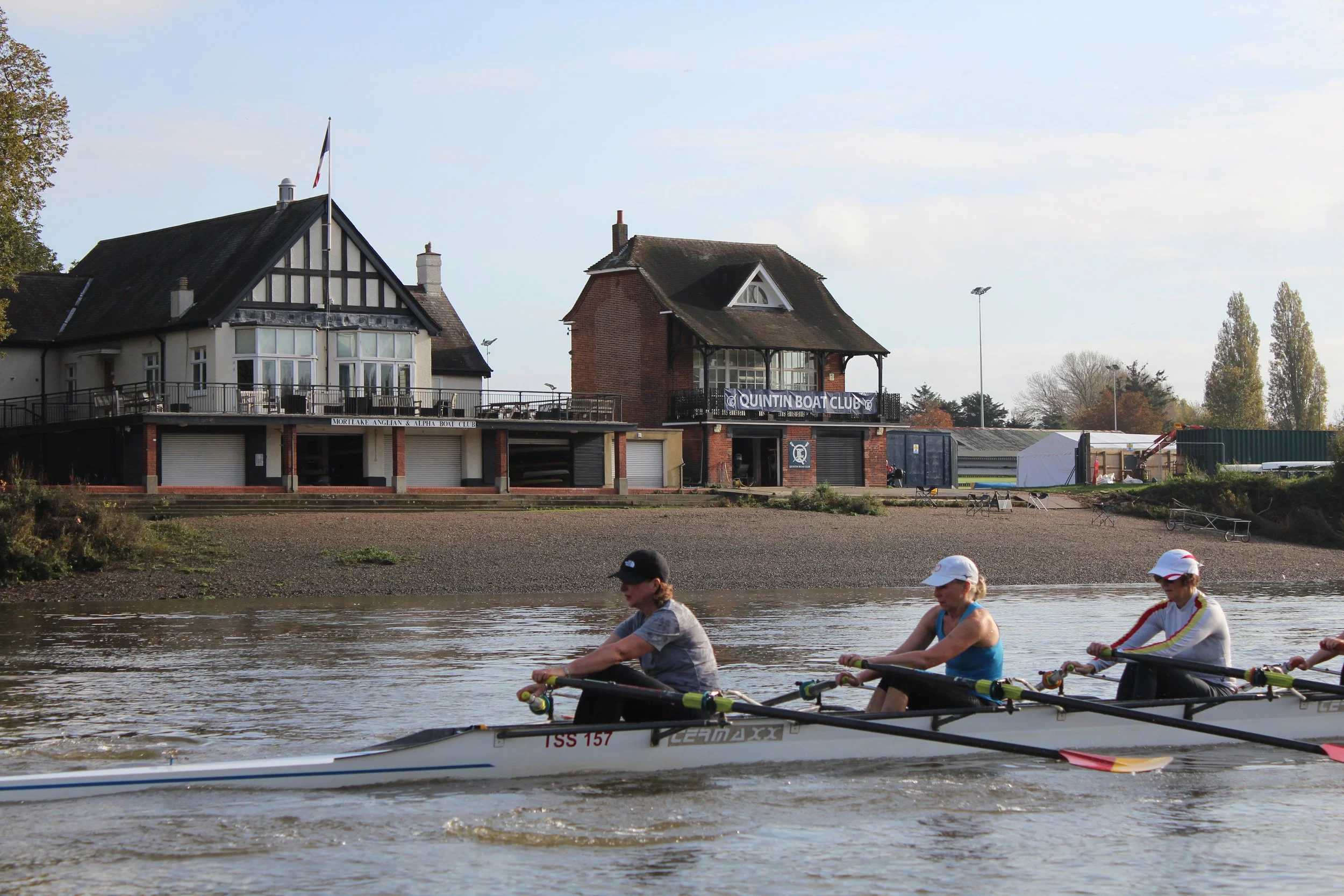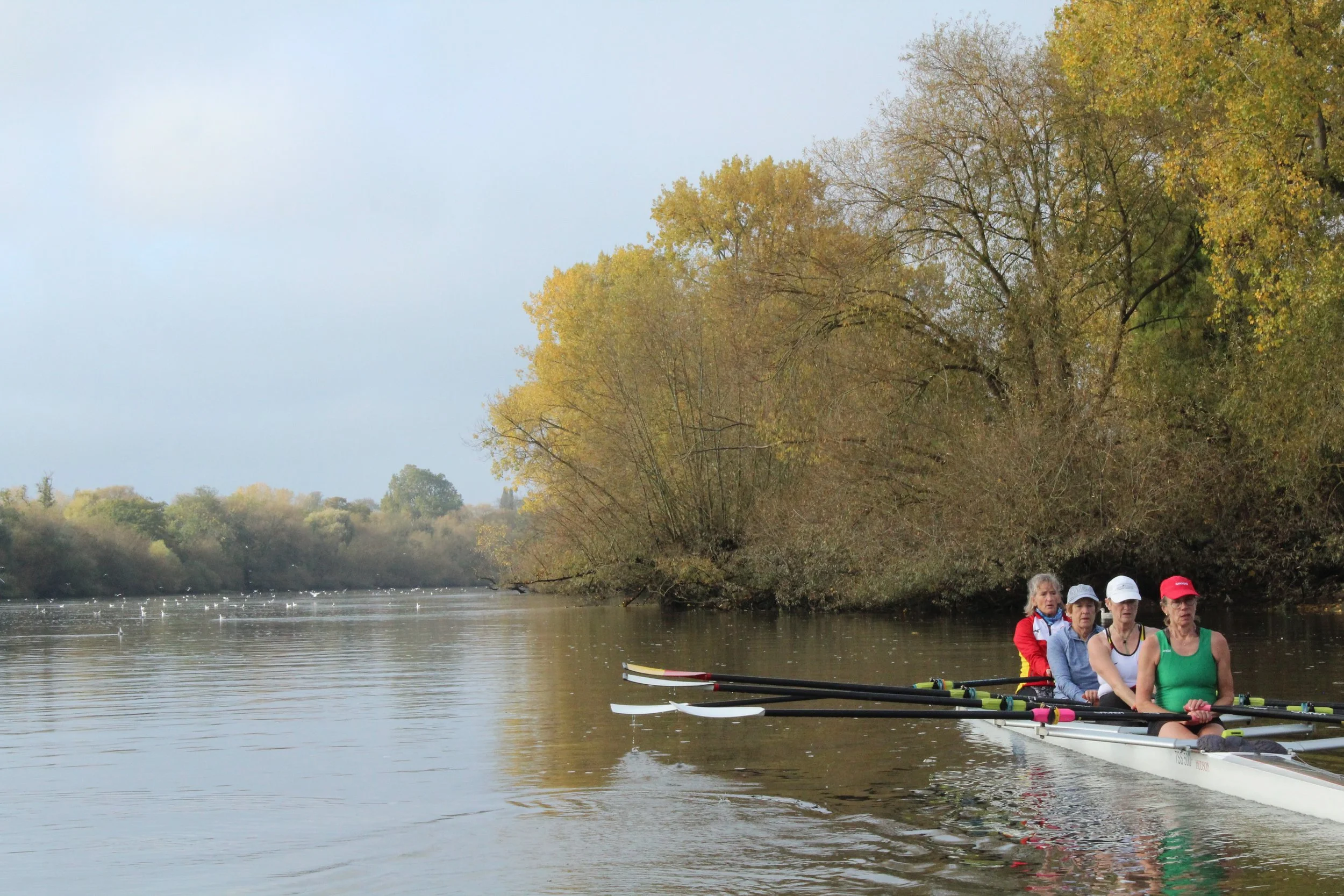
Our team, Their Research:
Exercise and Recovery
WHY EXERCISE MATTERS
We know that exercise can feel daunting during or after treatment—but it’s one of the most powerful ways to take back control. Regular physical activity has been shown to improve strength and cardiorespiratory fitness by 20–25%, reduce fatigue, and even lower the risk of recurrence and mortality by up to 42%. It also helps protect against chronic illnesses like heart disease and type 2 diabetes, which breast cancer recoverers face at higher rates.
Why heron thames?
At HERON Thames, we support women at all stages—whether newly diagnosed, undergoing treatment, or adjusting to life post-treatment. Our goal is to help you explore a new sport on your own terms, rebuild strength, restore confidence, and regain a sense of autonomy. We're a judgment-free space, where your approach to recovery is yours to define. If rowing sounds like a challenge you’d like to try, we’d love to hear from you.
Scroll down to explore some of the research and resources that have shaped our program.
WHY ROWING?
Rowing is uniquely suited to recovery. It’s a low-impact, full-body exercise that builds strength and stamina without putting unnecessary strain on joints. The steady rhythm of rowing and the time spent in nature can also be incredibly calming, offering mental clarity and a sense of peace.
Beyond the physical benefits, rowing fosters a strong sense of connection—whether with the water, your own body, or others in the boat. It’s an empowering, team-based sport that encourages you to move at your own pace while still feeling part of something bigger.
Please bear with us as we construct the research part of our website…
Heron Thames x
Bray F, Laversanne M, Sung H, et al. Global cancer statistics 2022: GLOBOCAN estimates of
incidence and mortality worldwide for 36 cancers in 185 countries. CA: A Cancer Journal for
Clinicians. 2024;74(3):229-263. LINK: https://acsjournals.onlinelibrary.wiley.com/doi/epdf/10.3322/caac.21834
Breast Cancer Now advice. Link: https://breastcancernow.org/about-breast-cancer/life-after-treatment/your-body-after-breast-cancer-treatment/physical-activity-exercise-and-primary-breast-cancer/
Cancer Research UK. Survival and Incidence by Stage at Diagnosis. Accessed May 28, 2024.
https://crukcancerintelligence.shinyapps.io/EarlyDiagnosis/
Maurer T, Thöne K, Obi N, et al. Health-Related Quality of Life in a Cohort of Breast Cancer
Survivors over More Than 10 Years Post-Diagnosis and in Comparison to a Control Cohort.
Cancers. 2021;13(8):1854. doi:10.3390/cancers13081854. LINK: https://www.mdpi.com/2072-6694/13/8/1854
Bower JE, Ganz PA, Desmond KA, et al. Fatigue in long-term breast carcinoma survivors: a
longitudinal investigation. Cancer. 2006;106(4):751-758. doi:10.1002/cncr.21671. LINK: https://acsjournals.onlinelibrary.wiley.com/doi/epdf/10.1002/cncr.21671
Schmid D, Leitzmann MF. Cardiorespiratory fitness as predictor of cancer mortality: a
systematic review and meta-analysis. Ann Oncol. 2015;26(2):272-278.
doi:10.1093/annonc/mdu250 LINK: https://www.sciencedirect.com/science/article/pii/S0923753419313687
Peel AB, Thomas SM, Dittus K, Jones LW, Lakoski SG. Cardiorespiratory Fitness in Breast
Cancer Patients: A Call for Normative Values. J Am Heart Assoc. 2014;3(1):e000432.
doi:10.1161/JAHA.113.000432 LINK: https://pmc.ncbi.nlm.nih.gov/articles/PMC3959685/pdf/jah3-3-e000432.pdf
Jordt N, Kjærgaard KA, Thomsen RW, Borgquist S, Cronin-Fenton D. Breast cancer and
incidence of type 2 diabetes mellitus: a systematic review and meta-analysis. Breast Cancer
Research and Treatment. 2023;202(1):11. doi:10.1007/s10549-023-07043-6
Ligibel JA, Bohlke K, May AM, et al. Exercise, Diet, and Weight Management During Cancer
Treatment: ASCO Guideline. JCO. 2022;40(22):2491-2507. doi:10.1200/JCO.22.00687
Campbell KL, Winters-Stone KM, Wiskemann J, et al. Exercise Guidelines for Cancer
Survivors: Consensus Statement from International Multidisciplinary Roundtable. Med Sci Sports
Exerc. 2019;51(11):2375-2390. doi:10.1249/MSS.0000000000002116
Courneya KS, Friedenreich CM. Relationship Between Exercise Durin g Treatment and Current
Quality of Life Among Survivors of Breast Cancer. Journal of Psychosocial Oncology. 1997;15(3-
4):35-57. doi:10.1300/J077v15n03_02
Cheung DST, Takemura N, Chau PH, Ng AYM, Xu X, Lin CC. Exercise levels and preferences on
exercise counselling and programming among older cancer survivors: A mixed-methods study.
Journal of Geriatric Oncology. 2021;12(8):1173-1180. doi:10.1016/j.jgo.2021.05.002




